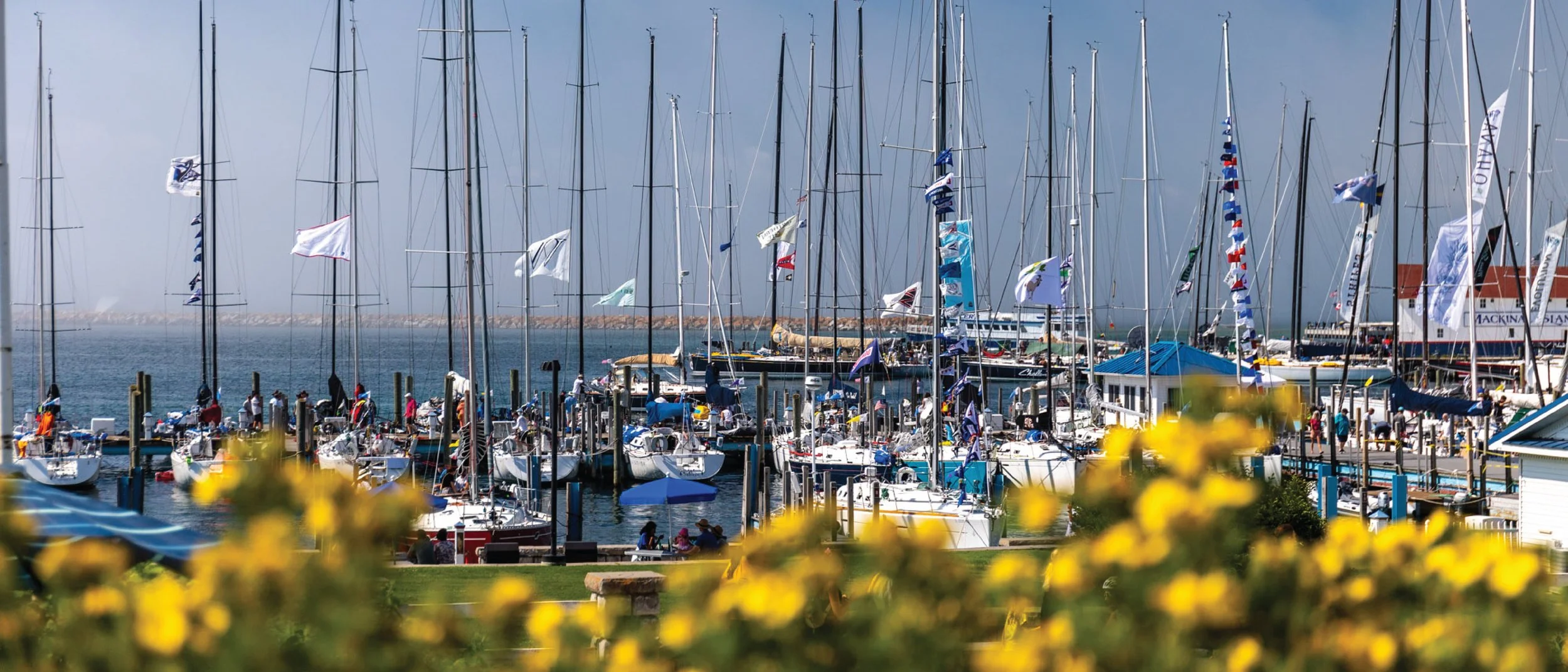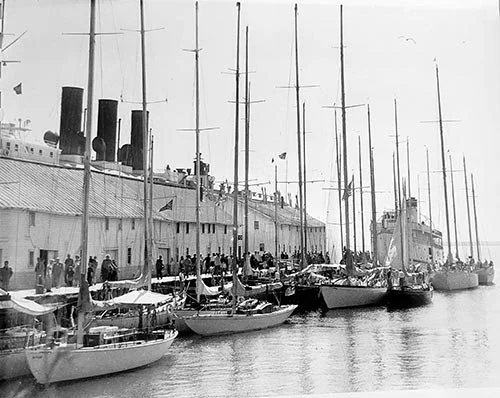The Chicago Yacht Club Race to Mackinac presented by Wintrust is the longest annual freshwater sailing race in the world. Starting in Chicago, the race spans 333 statute miles up Lake Michigan, finishing at the scenic Mackinac Island, Michigan. Widely recognized as one of the most prestigious yacht races in the world, the Mac Race is considered a bucket-list event for sailors across the United States and beyond, attracting participants from as far away as Europe, Hong Kong, New Zealand, and Australia.
The race's unpredictable weather and shifting winds on Lake Michigan make it a supreme test of sailing skill, rivaling many offshore ocean races. What first began in 1898 with just five boats has now evolved into a world-class sporting event.
The origins of the Race to Mackinac date back to 1898, when Joseph Myers designed two fin-keel sloops, Siren and Vanenna. These vessels sparked a competition between their owners, George Peate of Siren and W.R. Crawford of Vanenna, and after three races in June of 1898, Vanenna remained undefeated. This prompted the idea of a unique, challenging race – one that would forever change the history of sailing.
Mackinac Island was a favored summer destination for many Chicago Yacht Club members, and it was deemed a suitable finish line for a race that would test any sailor with the many challenges of Lake Michigan.
Thus, the first event, held in 1898, included those two sloops and three more schooners, with Vanenna claiming victory after 52 hours, 17 minutes, and 50 seconds. Following the inaugural race, the race was next held in 1904 and soon, by 1906, it had gained a devoted following. The original Mackinac trophy was purchased that same year, further solidifying the race's place in sailing history.
The Mac Race was temporarily altered after severe gales in 1911 with the finish moved to Harbor Springs in 1912 and 1913. However, the full 333-mile race resumed in 1914 until it was interrupted by World War I. Since 1921, the Race to Mackinac has been held annually, with the exception of 2020, when it was not run during the COVID-19 pandemic. In 2024, Maverick set the monohull record at 22 hours, 24 minutes, and 23 seconds, while Stars and Stripes holds the multihull record at 18 hours, 50 minutes, and 32 seconds, set in 1998.
Today, the Mac Race continues to challenge sailors with its unpredictable conditions and storied legacy, solidifying its status as one of the premier events in the world of offshore sailing.
Current Race Records
The monohull record is 22 hours, 24 minutes, and 23 seconds set in 2024 by Sanford Burris & William Kinney’s Andrews 80 Maverick
The multihull record is 18 hours, 50 minutes, and 32 seconds set in 1998 by Steve Fossett’s 60-foot catamaran Stars and Stripes
Memorable Macs
1911: Gale-force winds devastated the fleet, with Mavourneen being one of only four boats to finish. The race’s finish was moved to Harbor Springs for 1912-1913 due to safety concerns but returned to the full distance in 1914.
1925: A brutal northeast gale forced six of the 21 boats to retreat within 12 hours. Only eight boats finished, with some battling conditions that nearly sank them.
1937: Winds up to 75 mph struck, and only 8 out of 42 boats finished. The Coast Guard rescued the crew of Reverie after they were swept overboard.
1970: With winds reaching 60 mph, 88 of 167 starters withdrew. Ted Turner, racing aboard American Eagle, famously retracted his earlier comment calling Lake Michigan a "mill pond."
2002: A violent cold front caused 15 withdrawals and significant damage, including broken masts and capsized boats. Roy Disney’s Pyewacket broke the race’s time record.
2011: A strong storm in the northern lake caused extensive damage, and tragically, two sailors lost their lives—the first fatalities in the race's history.
2022: Dubbed as “one for the books,” this race featured multiple severe storms, lightning, and 55+ knot winds, forcing 29 teams to retire, making it one of the fastest yet most chaotic races on record.




